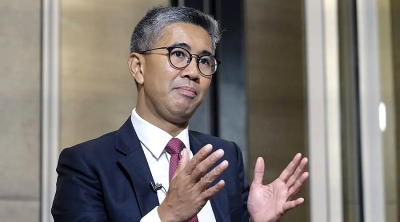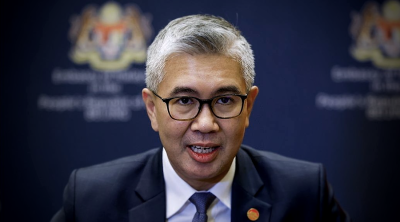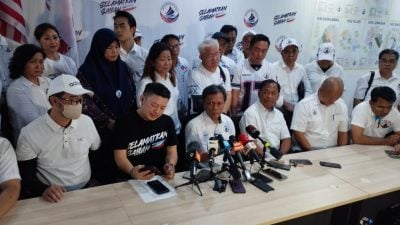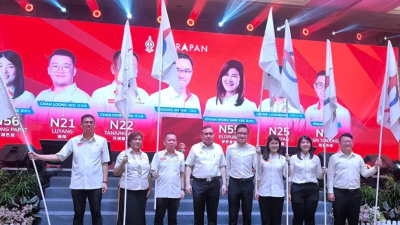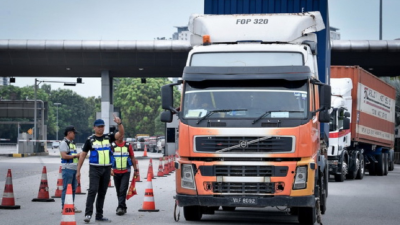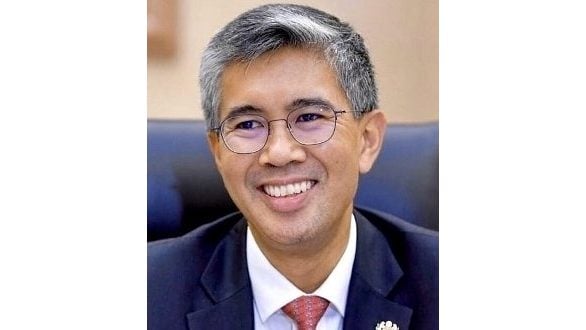
Malaysia has come a long way since the MADANI Government took office in December 2022.
The numbers back this: from the 2023–2024 missions abroad (many personally led by our Prime Minister), we managed to attract total potential investments valued at RM448 billion, and potential exports valued at over RM65 billion.
This did not happen by chance. The political stability as well as policy reforms, clarity and consistency of the Government have been highly encouraging to investors and trading partners alike.
To support broad-based reforms, the Ministry of Investment, Trade & Industry (MITI) launched and immediately executed many mission-based industrial reform projects under the New Industrial Master Plan 2030 (NIMP 2030) in 2023, followed up by sector-specific sub-policies like the National Semiconductor Strategy (NSS), and the Green Investment Strategy (GIS) in 2024.
These business-friendly and pro-growth policies have provided clear guidance to investors on Malaysia’s priorities and future expansion opportunities.
It is this clarity, as well as disciplined execution of policies that will ultimately deliver the sustainable growth that Malaysia needs.
The proof is clear in how 2024 became a rebound year for our economy.
Growth from January to September 2024 was at 5.2 per cent (cf. 3.8 per cent for 2023).
The ringgit stabilised and ended 2024 as one of the best performing currencies in Asia. Unemployment was contained at 3.2 per cent, while inflation was below 2 per cent for most of the year.
Meanwhile, January to September 2024 saw some RM254.7 billion in approved investments, a 10.7 per cent increase year-on-year, which included some of the commitments garnered from 2023. Malaysia’s electrical and electronics (E&E) sector – supporting 1.3 million jobs – received RM37 billion in investments in the first half of 2024.
The importance of this sector to our economy and the global supply chain is the reason we came up with the NSS to ensure its sustainable growth.
In fact, our industrial policies have seen global tech giants such as Amazon Web Services, Google, Microsoft, Infineon and Oracle (to name a few) invest or expand their footprint here.
Trade, likewise, soared in 2024. January to November 2024 trade grew 8.7 per cent to RM2.621 trillion year-on-year, the highest trade value ever recorded for the period, thanks to recovering external demand and positive spillover effects from the global technology cycle.
As an open trading nation in an uncertain geopolitical landscape, Malaysia must also explored new markets and partnerships – like we did in Central Asia and Latin America in 2024.
Maintaining the momentum
So, how do we keep this momentum going?
2025 will be challenging, not least because of the US-China geopolitical tensions (including the policy uncertainties over Donald Trump’s presidency), as well as the conflicts in the Middle East and elsewhere.
But rather than be paralysed by fear, we should leverage on our clear strengths.
Besides the clarity of our policy and purpose, we should capitalise on Malaysia’s strategic position, geopolitical neutrality and strong human capital.
We need to also leverage on our 2025 ASEAN Chairmanship (although it is only one part of the government’s long to-do list next year) because this is a crucial, once-in-a-decade opportunity.
Much attention will naturally gravitate towards ASEAN’s Economic Pillar, which MITI is leading and whose agenda will be finalised together with several other key ministries.
We must make the ASEAN Chairmanship work to Malaysia’s economic advantage.
Many of our industrial reforms are interlinked with initiatives across various key ministries, so there is a lot on our plate to forward agendas such as financing access for climate resilience and just transition, especially for MSMEs; and an ASEAN EV Roadmap.
Besides ASEAN, MITI’s industrial reforms to achieve sustainable growth will continue apace.
As outlined by our GIS, this includes attracting much-needed FDIs in green technology, and in regulating the power, water and carbon usage effectiveness (PUE, WUE, CUE) guidelines for data centre investments that wish to access tax incentives under the Digital Ecosystem Acceleration Scheme (DESAC).
MITI wants to prove that we can achieve both sustainability and attract high-ticket investments!
The year 2025 will also see more tangible progress for various NIMP-related projects – such as the start of NIMP’s crucial industrial supply chain mapping project (to better prepare for another COVID-like crisis); enabling MSMEs to begin their sustainability reporting; as well as advancing initiatives like Perak’s Kerian Integrated Green Industrial Park (KIGIP) and the Johor-Singapore Special Economic Zone (JS-SEZ).
As mentioned, the MADANI Government’s all-corners approach prioritises industrial reforms to ultimately strengthen Malaysia’s investment and trade numbers.
This, coupled with our fiscal and labour reforms, are what will move our macroeconomic needles, by driving jobs, productive capacity and social mobility for our rakyat and businesses.
In short, MITI is driving industrial reforms in earnest, while also pulling up our trade and investment numbers to boost the economy and improve the lives of ordinary Malaysians.
Driving inclusive and sustainable growth
All these efforts are crucial in the face of global headwinds, which have torn many less resilient countries apart.
This is why I feel that Malaysia’s 2025 ASEAN theme, “Inclusivity and Sustainability”, is on point.
To achieve this, we must harness the strength of all our peoples, whatever their nationality, race or religion, not only across Malaysia, but also ASEAN.
Meaningful economic growth must be inclusive and create more quality job opportunities for our youth across all regions.
It must enable fair access to opportunities for MSMEs and women, as well as macro-stability for big corporates, but with wealth that is equitably shared with the workers, and not at the expense of the environment.
This is the vision of the government I am part of, and one which MITI is working hard to realise.
Many of our initiatives – like enabling MSMEs to begin their sustainable journey; and the Women in Trade and Industry (WITI) to support female entrepreneurs – might not be highly visible yet, but they create a stronger foundation for the nation in the long-run.
While much has been accomplished, keeping Malaysia on this reform-plus-growth trajectory is what will uplift our nation sustainably.
Just see how Malaysia is firmly back on the global investors’ radar, generating positive international headlines by winning big-ticket investments after only two years of concerted effort.
Imagine what we could achieve by staying the course and persisting with this laser-focused mindset in the years ahead.
Let the sceptics remain sceptical. Our sincerity and efforts will show in the trade and investments we pull in.
One thing I am sure of: MITI and its agencies will do our best to make 2025 a year where Malaysia shines brightly as a more confident player in the new global order.
Here’s to a more productive and fruitful 2025 for all Malaysians.
(Tengku Zafrul Tengku Abdul Aziz is the Minister of Investment, Trade and Industry, Malaysia.)
ADVERTISEMENT
ADVERTISEMENT








